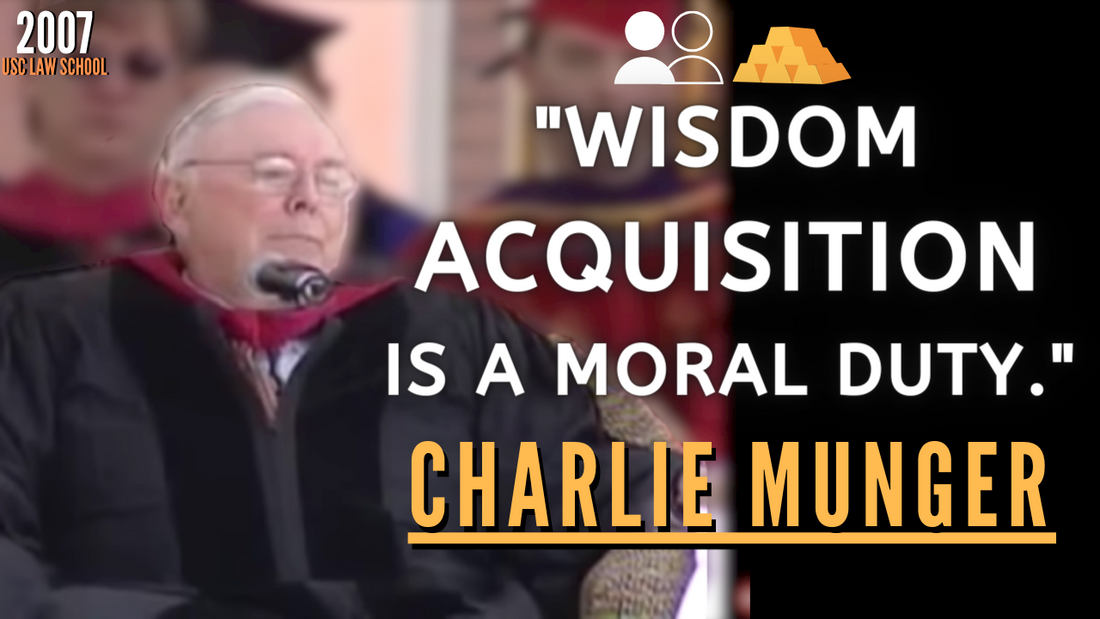
Charlie Munger: "Without Lifetime Learning you are not going to do very well." | USC 2007【Ep.161】
[Transcript]
CHARLIE MUNGER: Another idea that I got, and this may remind you of Confucius too, is that wisdom acquisition is a moral duty. It’s not something you do just to advance in life. Wisdom acquisition is a moral duty.
And there’s a corollary to that proposition which is very important. It means that you’re hooked for lifetime learning, and without lifetime learning you people are not going to do very well. You are not going to get very far in life based on what you already know. You’re going to advance in life by what you’re going to learn after you leave here.
If you take Berkshire Hathaway, which is certainly one of the best-regarded corporations in the world and may have the best long-term investment record in the entire history of civilization, the skill that got Berkshire through one decade would not have sufficed to get it through the next decade with the achievements made. Without Warren Buffett being a learning machine, a continuous learning machine, the record would have been absolutely impossible.
The same is true at lower walks of life. I constantly see people rise in life who are not the smartest, sometimes not even the most diligent, but they are learning machines. They go to bed every night a little wiser than when they got up and boy does that help—particularly when you have a long run ahead of you.
Alfred North Whitehead said it one time that “the rapid advance of civilization came only when man invented the method of invention” and, of course, he was referring to the huge growth of GDP per capita and all the other good things that we now take for granted, which happened just started a few hundred years ago and before that all was stasis.
So, if civilization can progress only when it invents the method of invention, you can progress only when you learn the method of learning.
I was very lucky. I came to law school having learned the method of learning and nothing has served me better in my long life than continuous learning. And if you take Warren Buffett and watched him with a time clock, I would say half of all the time he spends is sitting on his ass and reading. And a big chunk of the rest of the time is spent talking one on one either on the telephone or personally with highly gifted people whom he trusts and who trust him. In other words, it looks quite academic, all this worldly success.
Academia has many wonderful values in it. I came across such a value not too long ago. It was several years ago, in my capacity as a hospital board chairman. I was dealing with a medical school academic. And this man over years of hard work had made himself know more about bone tumor pathology than almost anybody else in the world. And he wanted to pass this knowledge on to the rest of us, and particularly people who treat cancer – bone cancer.
And how was he going to do it? Well, he decided to write a textbook that would be very useful to other people. And I don’t think a textbook like this sells two thousand copies if those two thousand copies are in all the major cancer centers in the world.
He took a year sabbatical, he sat down in front of his computer and he had all the slides because he saved them and organized them and filed them. He worked 17 hours a day, 7 days a week, for a year and that was his sabbatical. At the end of the year, he had one of the great bone tumor pathology textbooks in the world. When you’re around values like that, you want to pick up as much as you can.
(Source: https://youtu.be/jY1eNlL6NKs)
[YAPSS Takeaway]
